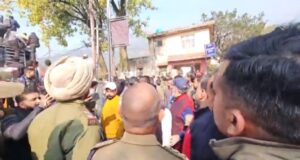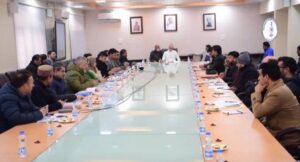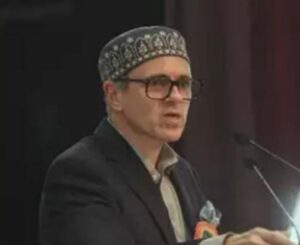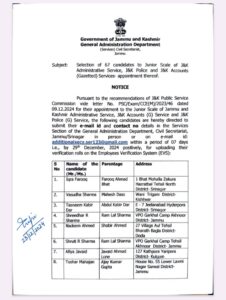J&K’s New Reservation Policy Triggers Protests, Open Merit Aspirants Seek Justice
Samba Times Article

The recent changes to Jammu and Kashmir’s reservation policy have sparked widespread protests, with students and job aspirants from the general category alleging discrimination. They argue that the policy, introduced during the Central rule by the Lieutenant Governor Manoj Sinha-led administration under the J&K Reorganisation Act, disproportionately favors reserved categories, leaving open merit candidates at a disadvantage.
Concerns Over New Reservation Policy
The protesters claim that
the current reservation system reserves more than 60% of opportunities for various categories, reducing the chances for open merit students to less than 40%
Key changes made under the new policy include:
Scheduled Tribes (ST): Reservation increased to 20%, now including Pahari-speaking people.
Other Backward Classes (OBC): Quota raised to 8%.
The overall reservation breakdown now stands at:
Scheduled Tribes (ST): 20%
Scheduled Castes (SC): 8%
Reserved Backward Areas (RBA): 10%
Other Backward Classes (OBC): 8%
Economically Weaker Sections (EWS): 10%
Local Area Candidates/Integrated Borders: 4%
Children of Defence Personnel (CDP), sports, persons with disabilities (PWD), etc.: 10%.
Demands for Rationalisation
National Conference MP Aga Ruhullah Mehdi joined the protests, advocating for a fair reservation system that does not marginalize open merit candidates. He suggested two approaches to rationalize the policy:
- Population-Based Reservation: He argued that if reserved categories constitute less than 50% of the population, their reservation should not exceed this percentage, ensuring fairness for open merit candidates.
- Supreme Court Guidelines: Mehdi called for adherence to the Supreme Court’s ruling, which caps reservations at 50%, leaving at least half of the opportunities for open merit candidates.
“If the reserved categories make up less than 50% of the population, why should open merit candidates suffer under a policy that reserves over 60% of opportunities? There must be justice for all aspirants,” Mehdi said during the protest.
Months-Long Protest Gathers Momentum
Ever since the policy was enacted, there has been significant online backlash, with students and job aspirants raising their voices against what they describe as systemic injustice. The discontent has now spilled onto the streets, with protests held outside the Chief Minister’s residence.
“The government must engage with us and address these concerns. The current system is unjust to open merit candidates and undermines the principles of equality and opportunity,” one of the protesting students said.
Political and Social Implications
The protests have underscored growing dissatisfaction with the policies introduced during the Central rule in J&K. Mehdi emphasized the need for the government to listen to the aspirations of its people, stating, “We replaced dictatorship with this government. It must now work for the people.”
The inclusion of Paharis in the ST category and the subsequent increase in their reservation percentage has drawn sharp criticism, with many accusing the administration of political favoritism.
Path Forward
The protests have reignited the debate on the balance between social justice and meritocracy in Jammu and Kashmir. While reserved categories argue for affirmative action to correct historical inequities, general category aspirants demand a fair share of opportunities.
As the government faces mounting pressure, stakeholders are calling for dialogue and reforms to create a more balanced and equitable reservation policy. Whether the administration will heed these demands remains to be seen.





